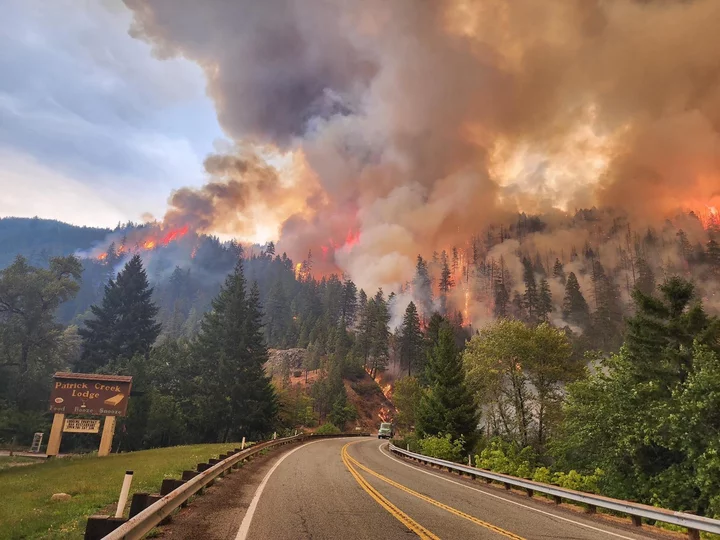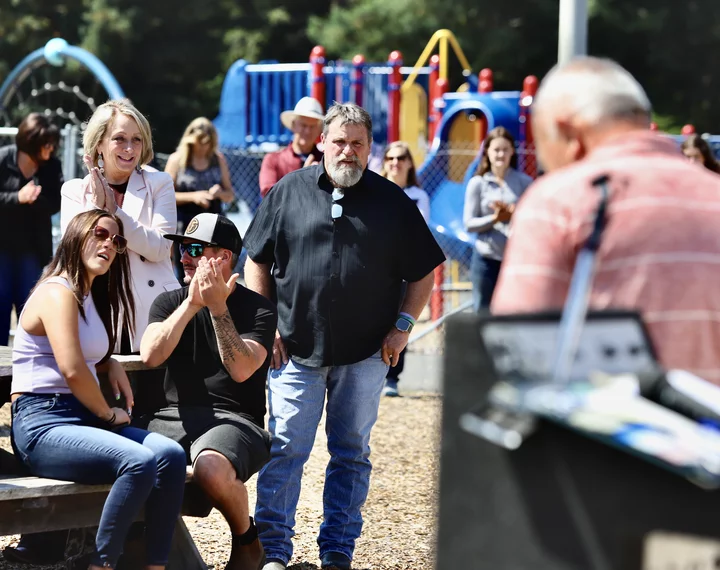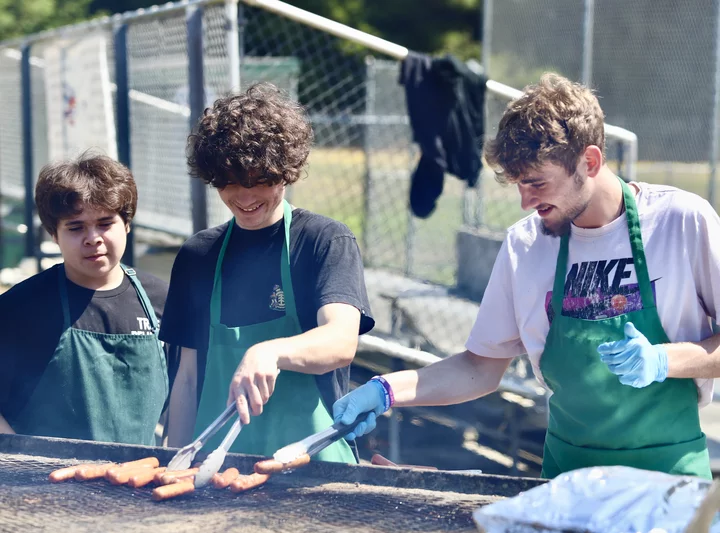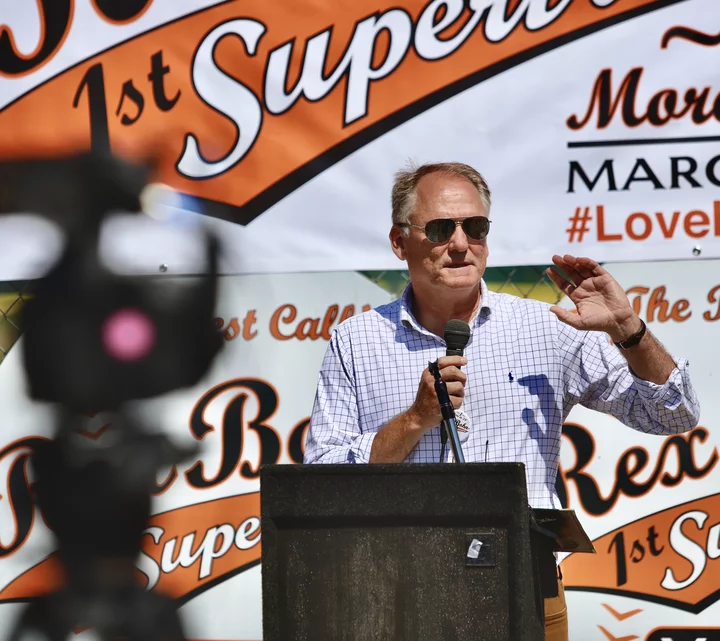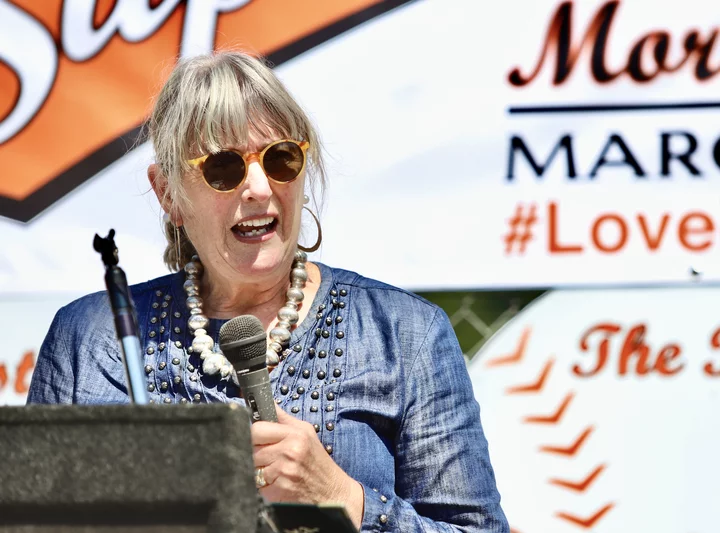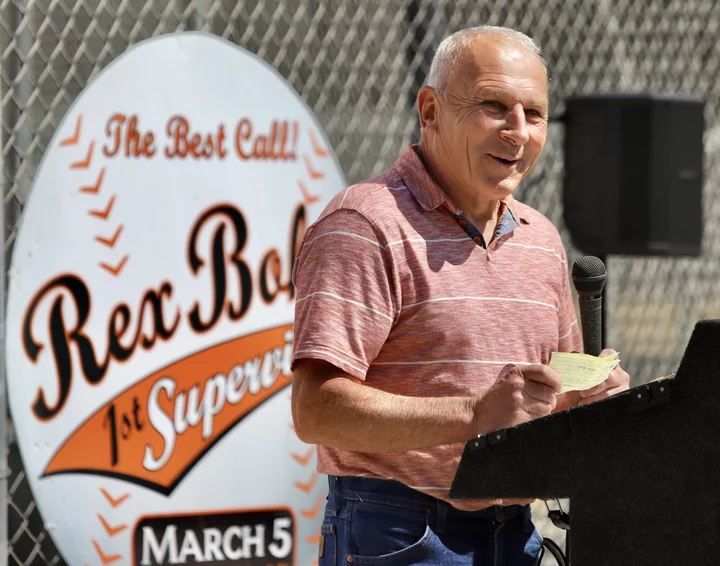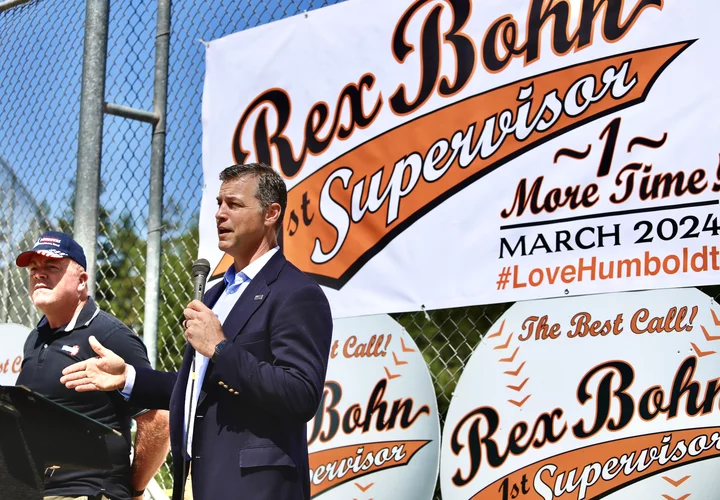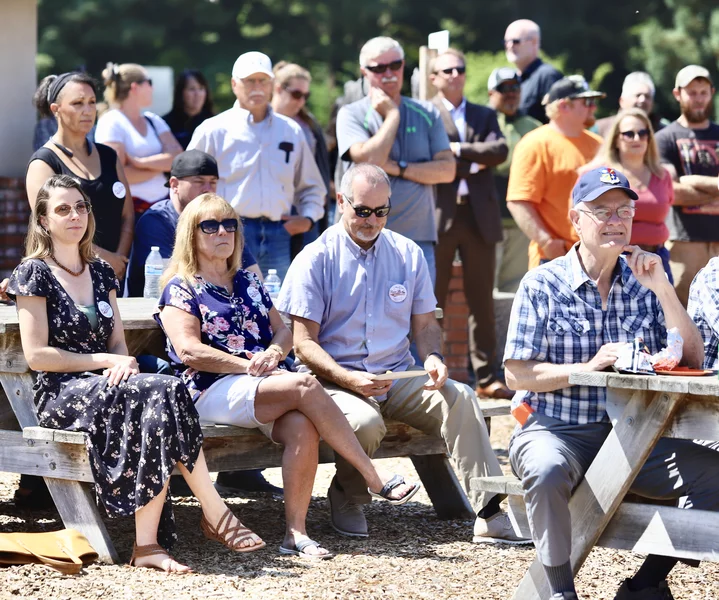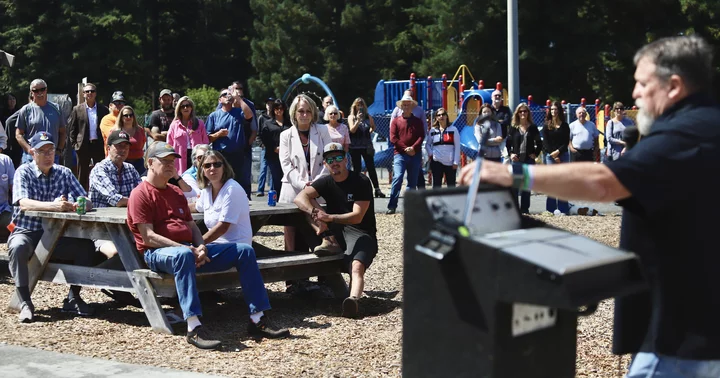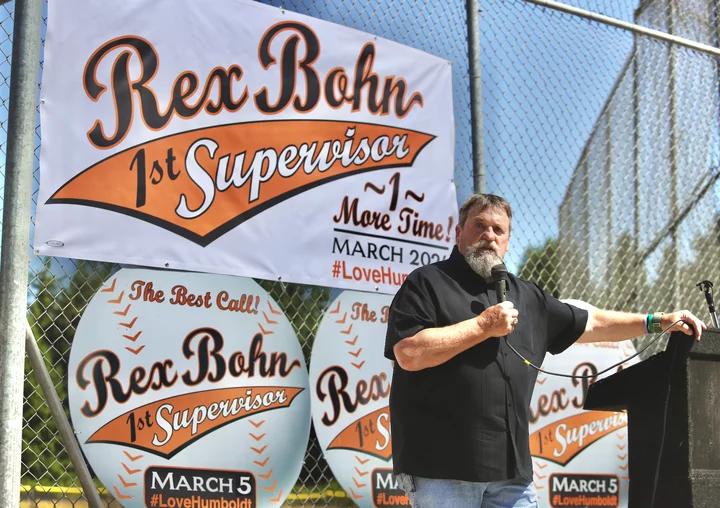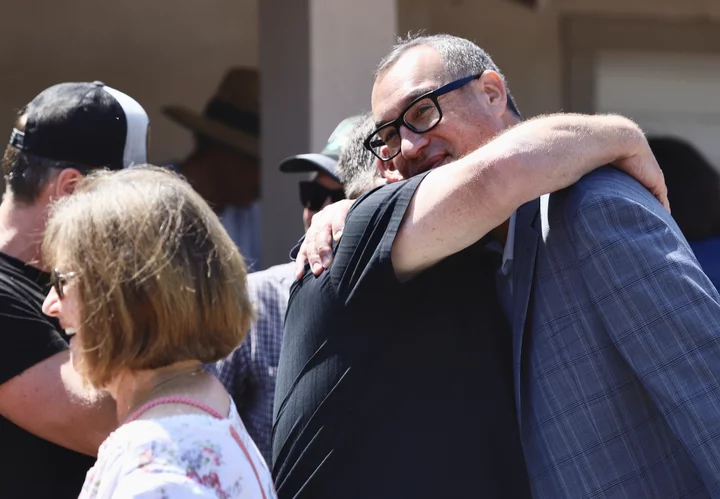(UPDATE — DELAYED!) Caltrans Says: Highway 199 Will be Opened Twice a Day For Controlled, One-Way Traffic, Starting Monday Wednesday
LoCO Staff / Thursday, Aug. 24, 2023 @ 10:26 a.m. / Traffic
Photo: Bill Steven via Inciweb.
UPDATE, FRIDAY, AUG. 25, 4:50 p.m.:
Due to aggressive fire behavior and severe weather which has affected the Smith River Complex fire over the last few days in Oregon, the previously planned escorted and limited traffic control on US-199 has tentatively been delayed until Wednesday, August 30th, as the roadway in Oregon is currently unsafe to travel.
###
Press release from Caltrans:
The California Highway Patrol understands the stress and inconvenience caused to our Del Norte Residents due to the Smith River Complex Fire. Our number one priority is protecting and saving the lives of our residents, motoring public and the fire personnel working diligently to protect our homes.
US-199 is a vital necessity to our county for resources, medical supplies and everyday commerce. Our goal is to make US-199 a working thoroughfare as soon as possible.
The California Highway Patrol in collaboration with Caltrans, will open US-199 two times per day beginning Monday August 28, 2023 in an escorted and controlled one-way traffic capacity. This date could possibly be changed depending on the direction of travel the fire takes over the next several days.
There will be a morning commute and an evening commute to accommodate travel. The escorted travel schedule will be the following:
0700 Hours (7 a.m.): Travel from the south closure in Gasquet on US-199 to the Oregon border. Once all of the northbound traffic has been escorted through the closure to the Oregon border, southbound traffic will be escorted from the Oregon Border back to the south closure in Gasquet. Once traffic has been escorted through in both directions, US-199 will again be closed until the 1700 hour opening.
1700 hours (5 p.m.): Travel from the south closure in Gasquet on US-199 to the Oregon border. Once all of the northbound traffic has been escorted through the closure to the Oregon border, southbound traffic will be escorted from the Oregon Border back to the south closure in Gasquet. Once traffic has been escorted through in both directions, US-199 will again be closed until the 0700 hour opening the following day.
The Smith River Complex Fire is very unpredictable, and these plans are subject to change if there is a safety risk to our motoring public and/or personnel.
The California Highway Patrol values every member of Del Norte County, making their safety and best interest a top priority. We are eager to open US-199 and bring this valued resource back to our community.
BOOKED
Yesterday: 4 felonies, 7 misdemeanors, 0 infractions
JUDGED
Humboldt County Superior Court Calendar: Yesterday
CHP REPORTS
No current incidents
ELSEWHERE
RHBB: ‘We Will Not Accept the Response’: Students Remain Overnight in Cal Poly Humboldt’s Nelson Hall
RHBB: Humboldt County Road Construction Notice: Central Avenue
RHBB: Electrify Home Appliances and Improve Efficiency, Says Arcata
Governor’s Office: Governor Newsom releases 2025 judicial appointment data
Why a Colorado Ambulance Company Wants to Limit California Taxes
Alexei Koseff / Thursday, Aug. 24, 2023 @ 7:40 a.m. / Sacramento
Photo: Tomás Del Coro from Las Vegas, Nevada, USA, CC BY-SA 2.0, via Wikimedia Commons.
A feud between private ambulance companies and local fire departments, with millions of dollars in profits on the line, underpins another battle about a ballot measure to restrict taxation in California that looms over the end of the legislative session.
American Medical Response, the Colorado-based corporation also known as AMR that reigns in the medical transportation services industry, has poured more than $3 million into the November 2024 initiative that would increase the requirements for implementing taxes, fees and other government charges — the single largest donor so far outside of its sponsor, the California Business Roundtable.
The contributions from AMR stand out especially in a campaign that has otherwise primarily garnered backing from real estate interests. Spokesperson Jason Sorrick said the company wants to stop fire departments from charging paramedics for the fire engines that respond to medical calls alongside them — fees that Sorrick said can add more than $1,000 to a patient’s ambulance bill and amount to taxing them again for a taxpayer-funded service.
“These charges prevent us from increasing wages and improving benefits for our paramedics and EMTs. They also limit our ability to improve or enhance our services because the revenue we are collecting is going to cover fire department overhead that has already been covered by taxpayers,” Sorrick said in a statement. “The intent is to let the voter, and thus the patient, decide if this practice is acceptable.”
Opponents say the fire departments that back up paramedics on these calls are providing a supplemental service, so eliminating their fees would shift the cost to taxpayers, boosting the profits of AMR and its peers. Some speculate that, in a sector where private companies regularly square off against emergency services agencies for lucrative exclusive contracts to provide ambulance rides in a community, AMR sees an advantage in limiting the ability of its public competitors to fund operations.
“It is painful to imagine why an out-of-state company with a mission to make a difference by caring for people in need would contribute millions of dollars-worth of its profits toward an initiative that will undermine publicly-provided emergency services to our communities,” Neil McCormick, chief executive officer of the California Special Districts Association, said in a statement.
Tax debate déjà vu
The California Business Roundtable initiative, dubbed the Taxpayer Protection and Government Accountability Act, secured its eligibility for the November 2024 ballot in February, but it suddenly threatens to become a central focus of the final stretch of the legislative session, which ends on Sept. 14.
A proposed ballot measure introduced last week with the backing of Assembly Speaker Robert Rivas, a Salinas Democrat, would flip the initiative’s own higher standards against it, requiring that changes to the threshold for approving state and local taxes pass by that same margin. That would mean the California Business Roundtable initiative would need to secure two-thirds support from the electorate, rather than a simple majority, a high hurdle for a statewide measure.
If the Legislature rushes this counterproposal through by the end of session, it could appear on the March ballot, before voters weigh in on the California Business Roundtable initiative. It advanced out of its first committee on Wednesday, and would need to pass by two-thirds in both chambers in the next month.
“Clearly there’s a pattern of people trying to use the initiative process to change the rules of the game for their own interests and I would just like things to be implemented fairly,” said Assemblymember Chris Ward, the San Diego Democrat who is carrying the legislative measure. “It just made all the sense in the world to me to say, ‘Look, if you’re going to try to move the goalpost, then you should have the same proportion of voters agree with you.’”
The situation is reminiscent of 2018, when the California Business Roundtable sponsored another initiative, funded largely by soda companies, that would have raised the threshold for passing local taxes. That proposal was pulled from the ballot after a last-minute deal with the Legislature to prohibit cities and counties from passing new soda taxes for more than a decade.
For now, lawmakers and other opponents of the proposed tax restrictions are brushing off any notion of negotiations this time around. But they seem perplexed by what the initiative’s major funders are after.
Carolyn Cole, executive director of the League of California Cities, said she was unsure why companies who do business with their communities would want to restrict the tax revenue they need to pay for those services. She compared it to “biting the hand that feeds them.”
“A measure that makes it harder for cities to have the resources to do what is necessary and important to serve their residents, to have a service provider like AMR contribute to that is sort of surprising to us,” Cole said.
What supporters want
AMR made three contributions to the initiative committee in spring 2022, totaling $3.1 million, or about a fifth of all money raised since it launched in late 2021, according to campaign finance records. The ambulance company sent another $500,000 to the California Business Roundtable’s political action committee — which has put about $6.4 million into its initiative campaign so far — during that time.
Meanwhile, contributions from investment companies, developers, property managers and builders make up nearly 40% of the $16.5 million raised by the campaign — and more than 90% of the $12.8 million donated to the California Business Roundtable’s committee since 2021.
Los Angeles-based Kilroy Realty, Santa Monica-based Douglas Emmett and Irvine-based Western National Group — the largest of the initiative’s real estate-affiliated donors — declined to comment or did not respond to questions about why they supported the effort. But property development and ownership are a frequent target of taxes, fees and assessments to fund public services and programs, especially by local governments.
Proponents of the California Business Roundtable initiative say they are cracking down on loopholes created by legislators and court rulings that weakened earlier voter-approved tax accountability measures.
“Alarmingly, a large segment of California’s small business community, including those who rent commercial space, are contemplating leaving the state, with many others struggling to stay afloat,” Hector Barajas, a spokesperson for the campaign, said in a statement. “California’s surging taxes and fees are a primary cause of the soaring cost of living, casting a dark shadow over all sectors in California, and housing is at the center of this impact.”
The measure would introduce a sweeping set of changes that make it more challenging to raise taxes in California, including a requirement for the Legislature to put any new or higher tax before voters for approval and another increasing the margin to pass a voter-initiated special tax at the local level, to two-thirds from a simple majority.
But perhaps the most significant provision — one that could upend the operation of California government at every level — would reclassify some fees and other charges that fund public services and programs as taxes. This would prohibit administrative agencies from setting these levies, requiring the Legislature or local governments to turn to the voters to adjust them.
Fees currently must not exceed the “reasonable costs” to the government of providing a service. The initiative would change that standard to “actual costs,” defined as the “minimum amount necessary to reimburse the government.” It would also raise the legal standard for the government to prove a levy represents that actual cost — which opponents fear would invite a wave of legal challenges to reclassify administrative charges as taxes that need two-thirds voter approval.
“Imagine asking voters to take up the various governmental charges for regulatory costs, licenses, permits, fines, and more on the ballot with a two-thirds vote,” McCormick of the special districts association said in his statement. “It could grind basic government functions to a halt.”
Local clashes may portend the future
A legal showdown over who controls medical transportation in Sonoma County highlights the potential stakes of this initiative for AMR and its rivals.
In California, emergency medical services operate through the counties, which must designate a local agency to manage their program. Those agencies are responsible for determining coverage areas for ambulance services and then awarding the contracts — which sometimes go to public entities, such as the county fire department, and sometimes to private companies, such as AMR. These providers then bill patients’ insurers for the ambulance rides.
The state’s $2 billion ambulance services industry is divided into 337 zones, according to the California Ambulance Association, about two-thirds of which are served by 170 private companies. The contracts — which generally guarantee exclusivity — can be lucrative and highly competitive.
Local fire officials in some areas have begun making moves for service zones long served by AMR, setting up intense and litigious battles over tens of millions of dollars in annual revenues. Santa Barbara County, where AMR has been the ambulance services provider for more than half a century, held its first ever public bidding process for the contract last year. Though AMR won the bid, the losing county fire department mounted multiple unsuccessful challenges, and the county board of supervisors ultimately voted in June to create a new system that splits the contract into three levels of care, each with its own provider.
In Sonoma County, officials awarded an exclusive ambulance contract to the county fire district in June, after three decades with AMR. The company sued, alleging that the bidding process was tainted by conflict of interest and that the fee schedule laid out by the fire district amounted to an illegal tax. AMR contends that the fire district would retain an excessive “profit” from its rates, more than its “reasonable costs” of providing the service, which should be considered a tax that needs to obtain two-thirds voter approval.
McCormick of the special districts association said this is already a challenging standard for emergency services agencies dealing with the volatile price of labor and materials. Tightening it even further to “actual costs” would be “unreasonable if not impossible,” he said, advantaging private ambulance companies who have freedom to set their fee levels.
“When it comes to emergency response and the safety of our families, what exactly is the minimum amount necessary?” McCormick asked in his statement. “These difficult, multi-faceted decisions are best assessed and determined through locally accountable boards, not through more lawyers in our court system.”
Sorrick, the AMR spokesperson, said the stricter standard for setting service charges will force government agencies to more transparently account for what they are paying for.
“This avoids double or triple charging for a service and prevents using profits generated from the fee to cover unrelated services or costs,” he said in his statement.
###
CalMatters.org is a nonprofit, nonpartisan media venture explaining California policies and politics.
Alderpoint Man Convicted of Murder in 2022 Shooting Prompted by Dog Dispute
LoCO Staff / Wednesday, Aug. 23, 2023 @ 5:11 p.m. / Courts
Press release from the District Attorney’s Office:
Today, a Humboldt County jury convicted 31-year-old Jake Henry Combs of first degree murder for the January 6, 2022 killing of 25-year-old Trevor John Earley of Alderpoint. Additionally, the jury found Combs intentionally discharged a firearm, causing Earley’s death. Combs faces 50 years to life in prison.
After hours of socializing together, Earley, Combs and others, were at Combs’ home when his large aggressive dog bit through Earley’s nose. Earley became upset and threatened the dog. Sometime later, while Earley chatted on the front porch with a friend, Combs retrieved his loaded 9mm pistol from his backpack, walked up to Earley from the side, and, without warning, Combs shot Earley in the head. Combs immediately fled the scene, but was apprehended by law enforcement on Highway 36.
Deputy District Attorney Whitney Timm, who prosecuted the murder, said: “I am grateful for the excellent investigative work of the Humboldt County Sheriff’s Office, California Highway Patrol, and the California Department of Justice - Bureau of Forensics. I extend my deepest condolences to Trevor Earley’s family.” District Attorney Stacey Eads hopes the family and loved ones of Mr. Earley find some degree of peace and closure in today’s outcome and expresses her appreciation for the jury and their service.
The case was prosecuted with assistance from District Attorney Investigator Martin Morris and Victim Witness Advocate Michala Pelren. Local defense attorneys Ben McLaughlin and Emery Welton represented Combs, who is scheduled to be sentenced by the Honorable Kaleb Cockrum on September 15, 2023.
PREVIOUSLY:
- 29-Year-Old Arrested in Connection With Alderpoint Homicide This Morning
- Friends and Family of Alderpoint Murder Victim Pack Courtroom as Suspect is Arraigned
- TODAY in COURT: Two Local Murder Cases Moving Forward
- TODAY in COURT: Man Convicted of Rio Dell Murder May Finally be Sentenced Next Month; Alderpoint Murder Suspect Scheduled for Preliminary Hearing
- Alderpoint Murder Suspect Told Cops He Shot Man in the Head to Save His Puppy, Investigator Testifies
(PHOTOS) ‘1 More Time!’ Rex Bohn Launches Campaign for Fourth Term on Humboldt’s Board of Supervisors
Ryan Burns / Wednesday, Aug. 23, 2023 @ 4:35 p.m. / Elections
Rex Bohn, Humboldt County’s longest-serving current supervisor, launched his re-election campaign today surrounded by supporters in the sunshine at the Redwood Fields recreation facility in Cutten.
Bohn is seeking his fourth straight term representing the county’s First District, which includes a southern sliver of Eureka and covers the county’s south and west portions, including the communities of Ferndale, Loleta, Scotia, Redway and Petrolia.
With hot dogs cooking on the grill and picnic tables hosting bowls filled with peanuts and tiny bags of chips, the event featured introductory remarks from friends and colleagues, including former Eureka City Manager David Tyson, Ferndale Volunteer Fire Department Chief Dennis DelBiaggio and Humboldt County Sheriff Billy Honsal.
To date, no one has announced their intention to challenge Bohn in the primary election, which will take place earlier than usual next year — March 5. Nonetheless, Bohn encouraged attendees to donate to his campaign as they signed his endorsement sheet, grabbed baseball-themed campaign stickers and snacked on cookies adorned with edible decals that read, “1 More in ‘24!”
As for a fifth term? Bohn threw cold water on that notion. “I can pretty much guarantee,” he said before starting over: “They say ‘Never say never,’ so I’m not going to say “never,” but I ain’t runnin’ again.”
Watch highlights from the campaign launch in the video above, and see photos from the event, snapped by the Outpost’s Andrew Goff, below.
Bohn, standing next to his son Trevor, listens as Dennis DelBiaggio sings his praises. | All photos (except that one of the cookie, above) by Andrew Goff.
Young volunteers grill dogs for the crowd.
David Tyson, former Eureka city manager and current CEO of the Trinidad Rancheria Economic Development Corporation.
Arcata artist and logging family scion Claudia Lima described Bohn as a man of action and leadership.
Bohn with his wife, Adena, and son, Trevor.
Ferndale Volunteer Fire Department Chief Dennis DelBiaggio.
Humboldt Deputy Sheriff’s Organization President Jamie Barney (left) and Sheriff Billy Honsal.
Onlookers, including Natalynne DeLapp of the Humboldt County Growers Alliance and former Eureka City Councilmember Mike Newman.
Former Eureka City Councilmember Marian Brady snaps a photo of Humboldt Deputy Sheriff’s Organization President Jamie Barney (left), Bohn and Humboldt County Sheriff Billy Honsal.
Supporters sign endorsement forms.
Bohn embraces former Fifth District Humboldt County Supervisor Ryan Sundberg
73-Year-Old Punched by Panhandler Outside Willow Creek Gas Station, Says HCSO
LoCO Staff / Wednesday, Aug. 23, 2023 @ 2:47 p.m. / Crime
Press release from the Humboldt County Sheriff’s Office:
On Aug. 21, 2023, at about 12:05 p.m., Humboldt County Sheriff’s deputies were dispatched to a gas station on the 39000 block of State Highway 299 in Willow Creek for the report of an assault.
Deputies contacted a 73-year-old male victim who had sustained minor injuries as a result of the assault. The victim told deputies that he was outside of the gas station when he was approached by the suspect, 37-year-old Chase Andrew Fullerton. Fullerton reportedly asked the victim for change. The victim declined and Fullerton then reportedly punched the victim in the head prior to fleeing the property.
Deputies located Fullerton walking on Sunset Lane near Village Way. He was taken into custody without incident.
Fullerton was booked into the Humboldt County Correctional Facility on charges of elder abuse (PC 368(b)(1)) and violation of probation (PC 1203.2(a)), in addition to warrant charges of vandalism (PC 594(b)(1)).
Anyone with information about this case or related criminal activity is encouraged to call the Humboldt County Sheriff’s Office at (707) 445-7251 or the Sheriff’s Office Crime Tip line at (707) 268-2539.
Sheriff’s Office Says it Would Like to Meet the People Who Shot Up the Fort Seward PG&E Substation Near Alderpoint, Causing $200,000 Worth of Damage
LoCO Staff / Wednesday, Aug. 23, 2023 @ 2:20 p.m. / Crime
Press release from the Humboldt County Sheriff’s Office:
The Humboldt County Sheriff’s Office is seeking information regarding a recent vandalism to a Southern Humboldt power station.
According to a representative from Pacific Gas & Electric Company, an unknown suspect(s) reportedly shot at several electrical components within the Fort Seward substation, causing upwards of $200,000 worth of damages. The vandalism is believed to have occurred sometime between August 14-22, 2023.
Anyone with information about this case, the suspect’s identity or related criminal activity is encouraged to call the Humboldt County Sheriff’s Office at (707) 445-7251 or the Sheriff’s Office Crime Tip line at (707) 268-2539.
County of Humboldt, Developers Sign Memorandum of Agreement in a ‘Momentous Step Forward’ for Offshore Wind Development on the North Coast
LoCO Staff / Wednesday, Aug. 23, 2023 @ 11:29 a.m. / Offshore Wind
Image via the U.S. Department of Energy.
###
Press release from the Humboldt County Administrative Office:
The County of Humboldt yesterday signed a Memorandum of Agreement (MoA) with RWE and Vineyard Offshore – two leading offshore wind developers with lease areas off the coast of Humboldt. This collaboration supports a community-led effort to identify offshore wind’s potential benefits to successful, sustainable, and equitable economic growth across the Humboldt County wind energy area. Furthermore, it seeks to align with the region’s existing economic development and workforce planning activities to address Humboldt County’s unique character, communities, and history.
“The County of Humboldt is proud to take a leadership role in the development of offshore wind on the West Coast, both to help achieve state and federal renewable energy targets in our ongoing fight against climate change, and to bring substantial benefits to our community,” said Michelle Bushnell, Humboldt County Second District Supervisor and Chief Elected Official to the Humboldt County Workforce Development Board. “Partnering with RWE, Vineyard Offshore, local governments and stakeholders at this early stage will ensure that Humboldt remains front and center as this globally significant project moves forward.”
The MoA states that the parties agree to cooperate to ensure that development of floating offshore wind seeks to avoid, minimize, and mitigate impacts to the surrounding community while promoting sustainable economic growth. This goal will be accomplished by engagement and consultation with Tribal Nations, local residents and community organizations to plan and promote a diverse economic landscape as offshore wind development moves forward.
“Humboldt County is well positioned to drive forward economic development that champions sustainable and collaborative growth for the North Coast region,” said Rob Mastria, California Project Director at RWE. “By working together from the start, our goal is to maximize opportunities for our community to shape offshore wind projects in a way that best addresses the needs and opportunities for the people of Humboldt.”
“We’re proud to partner with the County of Humboldt and RWE on an agreement that will build out a sustainable and equitable offshore wind industry on the West Coast,” said Christian Scorzoni, Vineyard Offshore Vice President and Head of External Affairs. “There’s a real opportunity here to create jobs and economic opportunities that will benefit everyone, and we’re excited to start this next chapter.”
The economic development and workforce planning efforts will include local oversight. The MoA is the beginning of a community-wide workforce planning and development effort that both welcomes and anticipates additional partnerships and collaboration.
“I’m thrilled about the MoA between the county, RWE and Vineyard Offshore,” said Humboldt County Workforce Development Board Chair. “This agreement propels us towards enhanced collaboration, focused communication, and vital financial support. This is a big step forward in forging a path to amplify economic development, workforce planning, and community engagement, fostering a prosperous future for all.”
“After months of negotiating, county economic development staff have reached an agreement with both of the offshore wind developers for the Humboldt County wind energy area to promote a mutually supportive relationship in planning for the region’s economic growth, workforce development, and overall prosperity,” said Humboldt County Economic Development Director Scott Adair. “This agreement is a momentous step forward as our community seeks ways to minimize and mitigate any adverse impacts of offshore wind development to our community while also promoting sustainable economic and workforce growth for Humboldt County residents and businesses.”
Background
In December 2022, the Bureau of Ocean Energy Management held the first federal lease auction for offshore wind energy areas in California. RWE and Vineyard Offshore successfully acquired lease areas off the coast of Humboldt County to develop commercial scale floating offshore wind projects. These projects will contribute toward California’s target to reach 25 gigawatts (GW) of offshore wind capacity by 2045.
RWE is a leading renewables developer in the U.S. with 8 GW of operating capacity and an ambitious project pipeline of more than 24 GW of onshore wind, solar and battery storage. The company is a pioneer of offshore wind with over 20 years of experience across the entire value chain resulting in 19 successfully completed projects globally. In the U.S., RWE is the fastest growing new entrant in the offshore wind market, with a development portfolio of over 4 GW, including the largest lease area off the coasts of New York and New Jersey.
Vineyard Offshore is leading the development of two lease areas in the Northeast, in addition to a recently acquired lease in Northern California, OCS-P 0562. Lease area OCS-A 522, known as Vineyard Northeast, is located off the coast of Massachusetts. OCS-A 544, known as Vineyard Mid-Atlantic, is located in the New York Bight. All three lease areas are owned by funds managed by Copenhagen Infrastructure Partners (CIP). Combined with its joint venture development of the first-in-the-nation offshore wind project, Vineyard Wind, now under construction, Vineyard Offshore has the potential to develop more than 6 gigawatts of clean, renewable and affordable energy on the East and West Coasts of the United States.
About RWE
RWE is leading the way to a green energy world. With an extensive investment and growth strategy, the company will expand its powerful, green generation capacity to more than 50 gigawatts internationally by 2030. RWE is investing more than €50 billion gross for this purpose in this decade. The portfolio is based on offshore and onshore wind, solar, hydrogen, batteries, biomass and gas. RWE Supply & Trading provides tailored energy solutions for large customers. RWE has locations in the attractive markets of Europe, North America and the Asia-Pacific region. The company is responsibly phasing out nuclear energy and coal. Government-mandated phaseout roadmaps have been defined for both of these energy sources. RWE employs around 19,000 people worldwide and has a clear target: to get to net zero by 2040. On its way there, the company has set itself ambitious targets for all activities that cause greenhouse gas emissions. The Science Based Targets initiative has confirmed that these emission reduction targets are in line with the Paris Agreement. Very much in the spirit of the company’s purpose: Our energy for a sustainable life.
About Vineyard Offshore
Vineyard Offshore is leading the development of two lease areas in the Northeast, in addition to a recently acquired lease in Northern California, OCS-P 0562. Lease area OCS-A 522, known as Vineyard Northeast, is located off the coast of Massachusetts. OCS-A 544, known as Vineyard Mid-Atlantic, is located in the New York Bight. All three lease areas are owned by funds managed by Copenhagen Infrastructure Partners (CIP). Combined with its joint venture development of the first-in-the-nation offshore wind project, Vineyard Wind, now under construction, Vineyard Offshore has the potential to develop more than 6 gigawatts of clean, renewable and affordable energy on the East and West Coasts of the United States. To learn more, visit: www.vineyardoffshore.com.
###
PREVIOUSLY:
- Harbor District Announces Massive Offshore Wind Partnership; Project Would Lead to an 86-Acre Redevelopment of Old Pulp Mill Site
- Offshore Wind is Coming to the North Coast. What’s in it For Humboldt?
- ‘Together We Can Shape Offshore Wind for The West Coast’: Local Officials, Huffman and Others Join Harbor District Officials in Celebrating Partnership Agreement With Crowley Wind Services
- SOLD! BOEM Names California North Floating and RWE Offshore Wind Holdings as Provisional Winners of Two Offshore Wind Leases Off the Humboldt Coast
- California’s Aging Electrical Infrastructure Presents Hurdle for Offshore Wind Development on the North Coast
- Crowley — the Company That Wants to Build a Big Wind Energy Facility on the Peninsula — Will be Opening Offices in Eureka
- Harbor District to Host Public Meeting Kicking Off Environmental Review of Offshore Wind Heavy Lift Marine Terminal Project
- Humboldt Harbor District Officials Talk Port Development As Offshore Wind Efforts Ramp Up
- Harbor District Officials Extend Public Comment Period for Environmental Review of Humboldt Bay Port Development Project
- Harbor Commissioners Approve ‘Once in a Generation’ Project Labor Agreement for Humboldt Offshore Wind Terminal Project; Union Reps Laud Unanimous Decision

